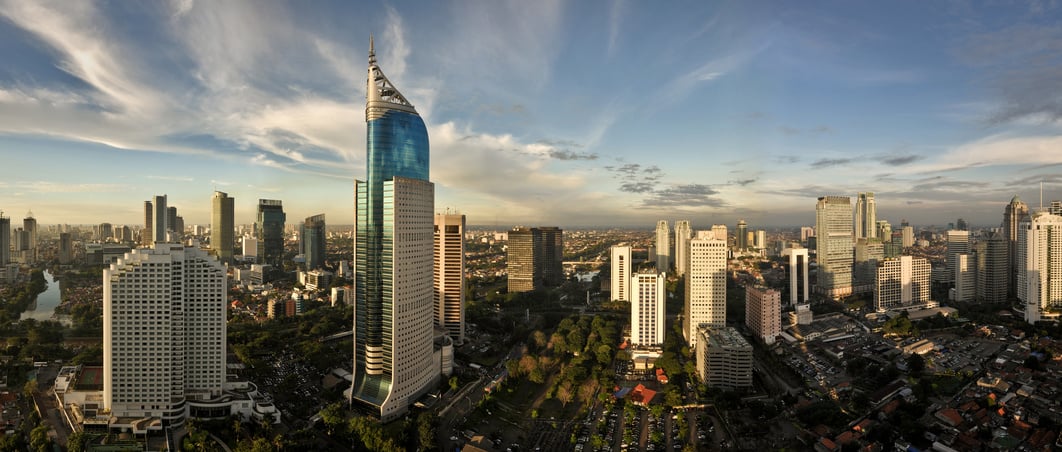In brief
On 5 October 2020, the Parliament approved the job creation law (RUU Cipta Kerja, commonly known as the “Omnibus Law“). The Omnibus Law amends a number of existing laws, including the following:
- Law No. 7 of 2014 on Trade (“Trade Law“)
- Law No. 39 of 2009 on Special Economic Zones (“SEZ Law“)
- Law No. 36 of 2000 on the Stipulation of Government Regulation in Lieu of Law Number 1 of 2000 on Free Trade Zones and Free Ports (“Law 36“)
- Law No. 37 of 2000 on the Stipulation of Government Regulation in Lieu of Law Number 2 of 2000 on Sabang Free Trade Zone and Free Port (“Law 37“)
Essential Changes
Changes to the Trade Law
The Omnibus Law amends several provisions of the Trade Law. The notable changes are as follows:
- Introduction of Business Licenses Term
The amendment of the Trade Law reaffirms that trade licensing will be done electronically through the online system.
The amendment also introduces a business license exemption by the central government but does not provide further guideline on this.
- Distribution
The amendment of the Trade Law only states that further regulations of distribution will be regulated in government regulations. We do not see any significant changes in relation to distribution in the amendment of the Trade Law.
- Export and Import
The Omnibus Law aims to drive exports by introducing a new government mandate to issue policies on the improvement and development of exported innovative national products.
Further, the Trade Law has been amended to mention that there will be further provisions or determination on used imported goods that should be regulated in government regulations. Note, in theory, all imported goods must be in new condition (unless regulated otherwise), so this is an exemption to the principle. Further, this change indicates that the Ministry of Trade will now share its authority to regulate this matter while previously it was under the sole authority of the Ministry of Trade.
The Trade Law also stipulates that importers are not required to obtain a business license for imports that are not carried out for business activities. As there is no further explanation of what is meant by imports that are not carried out for business activities, it is unclear whether it is intended for import for personal use or for any other purposes. It is also uncertain how implementation will be done on imports for that purpose.
In relation to the temporary import and export, the amendment of the Trade Law deletes a provision that obliges exporters/importers to obtain approvals for temporary importation and exportation. With this deletion, it remains to be seen how the temporary importation and exportation will be implemented as this may relate to the authority of the Directorate General of Customs and Excise to supervise the movement of the temporary imported goods.
The above summary only applies to the general importation of goods. The importation of certain goods should refer to the specific regulation. For example, the provision on the importation of horticulture products must refer to additional specific import requirements.
- Sanctions
The amendment of the Trade Law provides the types of administrative sanctions that can be imposed for violations of certain provisions of the Trade Law, namely warning letters, recall of products from distribution, temporary suspension of business activities, closure of warehouse, fines and/or revocation of the business license. However, a government regulation will further provide the criteria, type, and amount of fines and procedures for the administrative sanctions.
We note that there are some changes in the criminal sanctions and fines under this amendment. For example, for violating the requirement to use of Indonesian language in labels, there is an increase of the fine from IDR 5 billion to be IDR 10 billion and the amendment provides an exemption from criminal sanctions for business actors with low or mid-risks.
- Changing from Ministry Regulation to Government Regulation
The amendment of the Trade Law indicates that the government will issue further guidelines, not the ministerial regulations. This is in line with the spirit of the Omnibus Law to streamline the licensing and guidelines for ease of doing business in Indonesia.
Further, as discussed above, some deletion of the previous provisions may involve the authority of other government institutions, such as the Directorate General of Customs and Excise, which is under the Ministry of Finance’s supervision.
Overall, subject to the issuance of further implementing regulations, we can say that these changes are not significant compared to those in other sectors. The amendment does not include specific proposals to liberalize investment in the trading sector. We may see further implementing regulations from the central government in the near future.
Changes to Special Economic Zones
The SEZ Law is amended to provide more business opportunities and incentives in the special economic zone (“SEZ“). The production, distribution, education and health sectors are now included in the range of business activities allowed to operate in the SEZ. Further examples of new incentives provided under the Omnibus Law are related to the exemption of import, relaxation on the appointment of foreign commissioners and directors, importation of consumption goods, and broader understanding of foreign parties that may enjoy the facilities in the SEZ.
Changes to the Free Trade Zone and Free Port Zone
The Omnibus Law deletes some specific provisions on free trade zones and free port zones authorized bodies (i.e., zone committee and deputy concession) and stipulates that their authorities will be regulated under government regulations.
Changes to Sabang Free Trade Zone and Free Port Authority
There is no significant change to Law 37. The amendment only stipulates that the provisions on excise exemption facilities should be in accordance with prevailing laws and regulations.
Implementing Regulations
The Omnibus Law provides that the relevant implementing regulations, including government regulations, must be issued at the latest three months after the enactment of the Omnibus Law.
The existing implementing regulations of the Trade Law, SEZ Law, Law 36 and Law 37 remain effective to the extent they do not contradict the provisions under the Omnibus Law. These implementing regulations must be harmonized with the provisions under the Omnibus Law at the latest three months after the enactment of the Omnibus Law.






